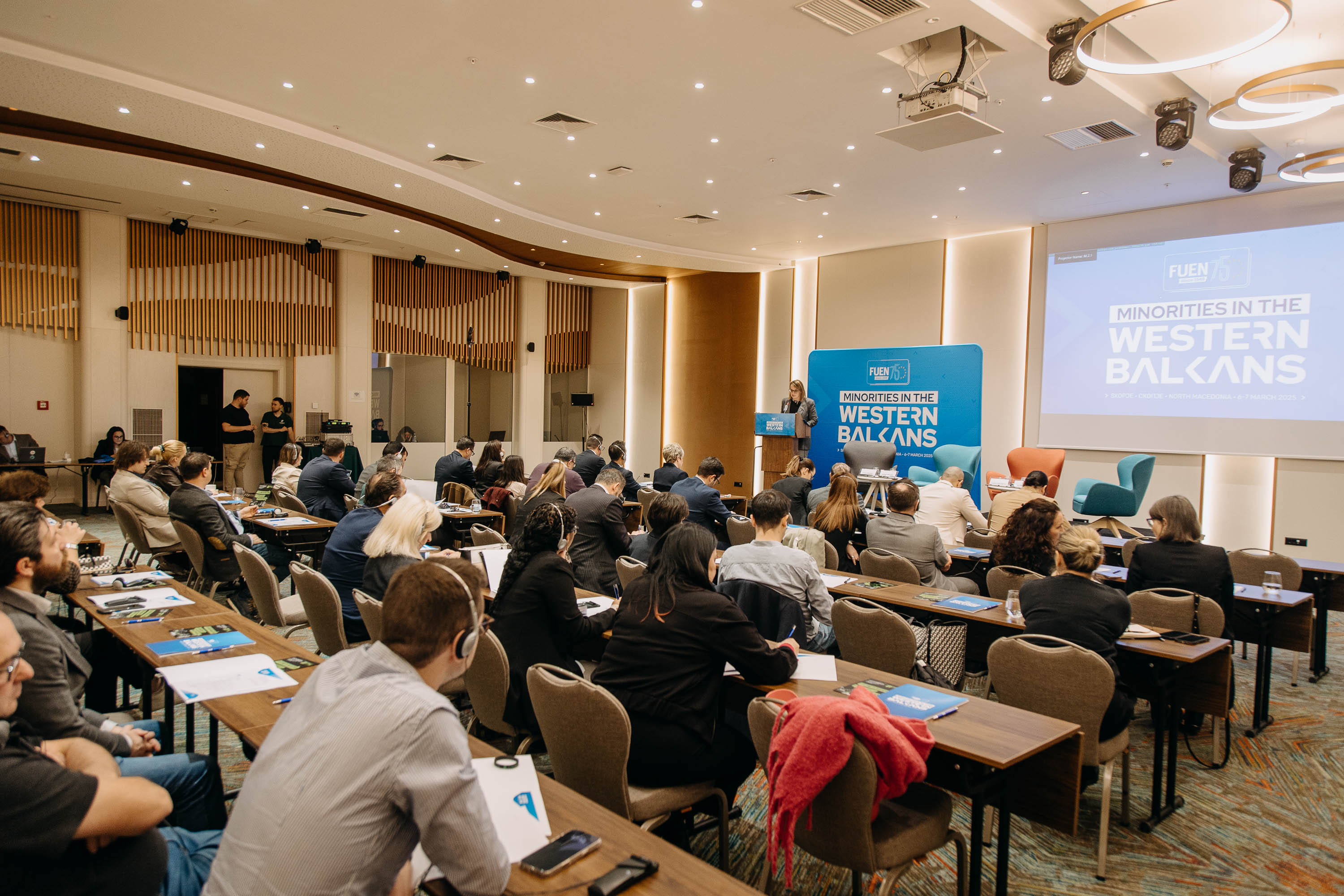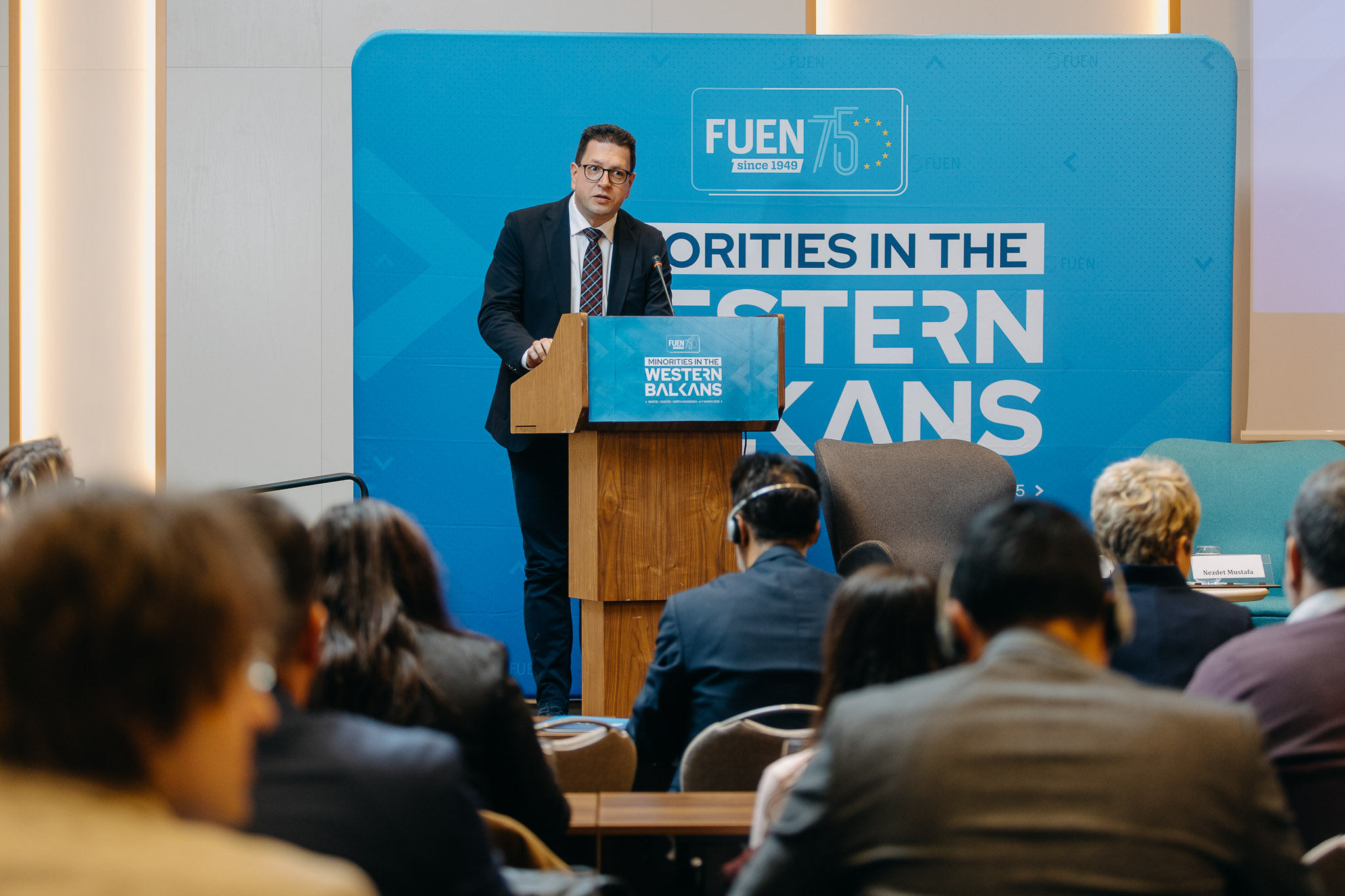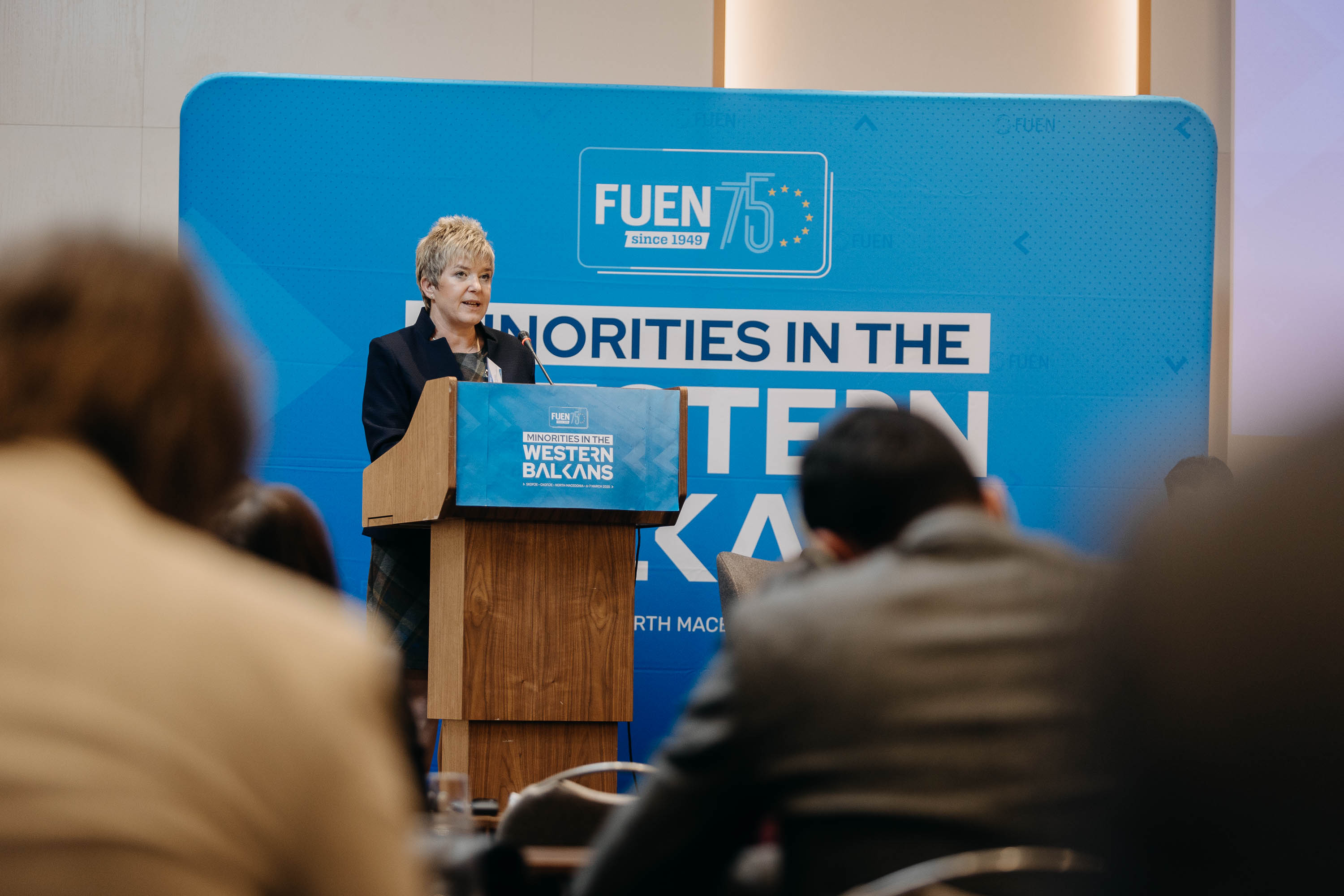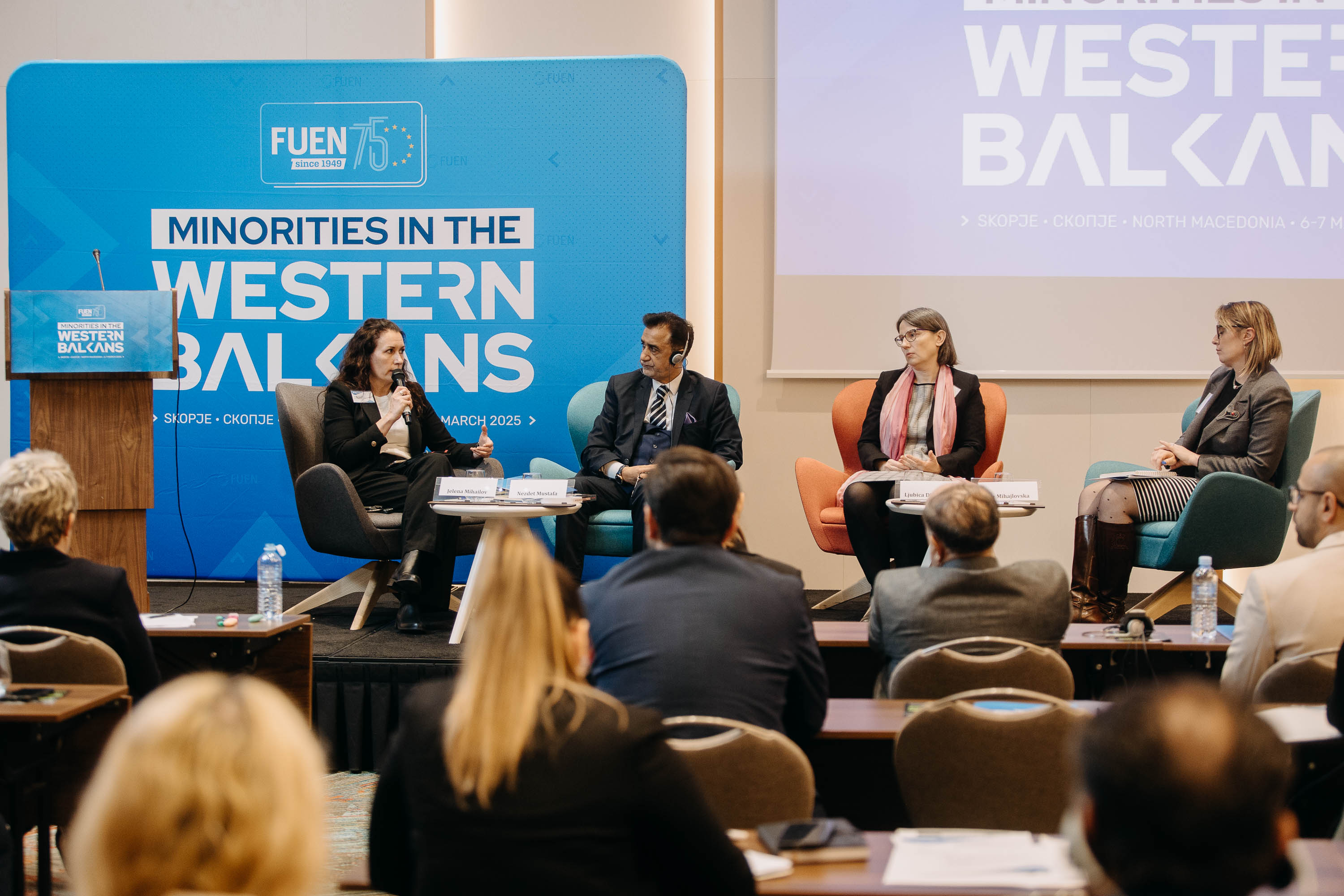
Minorities from the Western Balkans discuss approaches to combat hate speech in Skopje
07.03.2025“It is a mistake to believe that the struggle for minority communities' language rights is outdated and that we live in a peaceful, post-historical era. It is a failure of any state that considers hate speech in society to be a minor inconvenience. Because if minorities can be publicly targeted with hate at football matches, in schools, in hospitals or in nightclubs without consequence, then it is only a small step from verbal abuse to physical violence” – said FUEN President, Member of the European Parliament Loránt Vincze on Thursday, 6 March 2025 in Skopje, North Macedonia, at the opening of the FUEN Western Balkans Network Meeting.
During his opening speech, the FUEN President strongly condemned the stabbing of a 20-year old man last Friday in Bratislava, Slovakia, who was attacked simply because he was speaking Hungarian with his friends in front of a nightclub. Loránt Vincze expressed his solidarity and pointed out that unfortunately there are many similar stories in different regions of Europe.
Hate speech must be combated with legislation, enforcement, and the full force of the law, he said, adding that this is also a failure of European institutions that have not learned from history. “History has a way of repeating itself. Preparedness, prevention, cooperation, and dialogue are never outdated and must never be pushed off the institutional agenda” – was his message.

The event, organised by FUEN with the support of the Roma Community Center DROM and the Network of Associations of Local Authorities of South-East Europe (NALAS), brings back minority organisations and government representatives from the Western Balkans to discuss approaches to address hate speech against minorities. R.C.C. DROM Executive director Jasarevski Ahmet welcomed the participants, Minister in charge of Roma integration Shaban Saliu talked about the importance of constant dialogue and the role of education in underprivileged communities, Iva Mihajlovska from NALAS highlighted the role municipalities can play against polarisation, which is a trap to democracy. Local governments must act as bridges, not barricades between communities, as she put it.
In her keynote speech for the event`s first panel, Elvira Kovács, Member of the Parliamentary Assembly of the Council of Europe said that hate speech endangers social cohesion and democratic stability, while designating persons belonging to national minorities as victims. These dynamics are often aggravated where broader social, economic or political problems or divisions are present. In the Western Balkans, hateful narratives are particularly dangerous because of their substantial potential to increase the existing tensions between communities and negatively affect the trust building process as well as genuine recovery of the whole society from the past conflicts, she added.

The following discussion, featuring Deputy Minister fro Inter-Community Relations Nezdet Mustafa and ECMI representatives Ljubica Djordjevic and Jelena Mihailov was a lively one with many interventions from the public, as the main topic was the supposed segregation caused by minority schools. While a separate school system can indeed limit the interactions between the communities, a mixed school can facilitate assimilation and takes the control out of the minority’s hands, as some of the interventions pointed out.
On Friday, the meeting continues with a presentation of FUEN’s Mute Hate Speech campaign, a workshop to draft action plans addressing hate speech, a panel discussion preensting local initiatives to fight antigypsyism. In the afternoon, minority education and education about minorities will be in the focus.

PRESS RELEASES
- FUEN calls for the inclusion of the Ladin language at the 2026 Winter Olympic Games
- FUEN Urges UN Special Rapporteur to Advocate for a Coherent EU Minority Protection Framework
- FUEN wishes you a peaceful Christmas season, restful days and a bright, hopeful start to the new year!
- FUEN calls on the EU to act over systematic ethnic-based land confiscations in Slovakia
- Women of Minorities conference in Budapest calls for structural change to ensure equal political participation of minority women
- FUEN President Olivia Schubert at UN Forum on Minority Issues in Geneva
- "Laboratory of Peace": 28th Seminar of Slavic Minorities held in European Capital of Culture Gorica/Gorizia
- Equality in Political Participation and Representation: Third “Women of Minorities” Conference to Be Held in Budapest
- FUEN Working Group on Education discusses challenges and future of minority schooling in Europe
- 28th Seminar of Slavic Minorities in Europe to take place in Gorica/Gorizia, Italy














